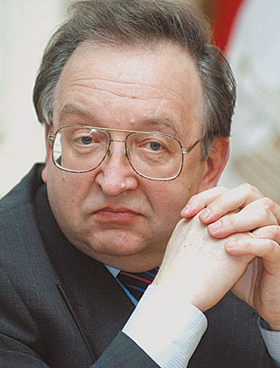Interview by Alexandre Panov, Chief Researcher, the USA and Canada Institute, Russian Academy of Sciences; corr. member, Russian International Affairs Council (RIAC)
Interview by Alexandre Panov, Chief Researcher, the USA and Canada Institute, Russian Academy of Sciences; corr. member, Russian International Affairs Council (RIAC)
– Alexandre, at APEC 2012, Russia and Japan signed a series of agreements, notably the MoU on the Vladivostok LNG Project. What are the prospects for Russia-Japan cooperation in the fuel and energy sector, including nuclear energy?
– Japan is a unique country, and it signed several different economic agreements with Russia during this event, agreements chiefly relating to the construction of the LNG plant and a major wood processing facility near Irkutsk. A poaching control agreement was also concluded. The Japanese are very eager to do business in the Russian Far East. Japan is contemplating decommissioning its nuclear power plants by 2030. Once this decision is made, the country will have to replace them with fossil fuel power plants. That is why Japan is interested in receiving gas and oil from Russia. Yet Russia faces some stiff competition from numerous competing oil and gas suppliers: not only the Middle Eastern and Asian countries. Japan is also buying gas deposits in Africa and Latin America. And our ex-Soviet republics, including Turkmenistan, Uzbekistan and Kazakhstan, have already begun gas supplies to China at half the price that Gazprom offers. So competition in this market is indeed tough. Even if the LNG plant is put into operation, gas price and market size will be the key issues. However, Japan’s willingness to cooperate and its interest in this cooperation are obvious. They are ready to invest in new deposits. Unfortunately, after the Sakhalin 1 and Sakhalin 2 projects, no new deposits have yet been brought on stream. Furthermore, we do not have any gas reserves that could be tapped within the next 5 to 7 years. Admittedly, the ball is currently in our court. Russia and Japan signed that nuclear energy cooperation agreement. I believe the focal point of it is not joint power plant construction, but fuel supplies to the remaining nuclear plants. This kind of cooperation is also possible with third countries. Japan is stopping its NPPs (Nuclear Power Plants), yet it has NPP construction agreements with Vietnam and Lithuania. The agreement under review also covers NPP safety and used fuel rod burial and processing.
– Clearly, providing access for Japan to participate in developing Russian Far East and Siberia meets Russia’s economic interests. Yet does it match our countries’ political interests?
– No doubt. No other country, except for Japan, has an interest in developing these regions and major projects. If we look back over history, we can observe that, historically, all Siberian and Far East resource development projects have been associated with Japan. Sakhalin 1, Sakhalin 2, the LNG plant in Korssakov, the Vostochniy sea port, Irkutsk coal deposits, the timber industry, and car plants. No other country could boast similar projects. Let me reiterate the fact that Japan has revealed a genuine interest, and crucially, Russia’s response should be appropriate. Regrettably, for our part, we do not display such a consistently pro-active interest.
– Cultural cooperation and mutual trust are important to both political relations and business. What steps should be taken to promote cultural cooperation between our countries? What is Russia’s image in Japan and vice versa?
– This is a difficult question. Interest in Russian culture and literature is traditionally high in Japan. The annual Russian culture festivals gather in Japan from 300,000 to 500,000 spectators. Yet one can not say that this creates a more attractive image of Russia in Japanese eyes. There’s a saying in Japan: “We love the Russians, but not Russia.” Unfortunately, Russia’s current image builds on past stereotypes. No positive features have been added to this image of our country by the Japanese press continually focusing on corruption, murders, mafia, oligarchs and so forth. Additionally, the war legacy has not yet been overcome. The Japanese believe that the Soviet Union unleashed a war on Japan unfairly and that over 60,000 Japanese servicemen perished as prisoners of war. The unsettled border issue also appears on the radar from time to time. However, once there is the will and interest in developing a project, this adverse background recedes, and has a negligible effect. We enjoy advanced contacts in strategic stability, security and even intelligence. The level of mutual trust between our countries is not as high as could be desired, but is on the rise.
– Does it make sense to have a policy in place focusing on building confidence?
– Of course, we must have one. And this means we should network more with the Japanese. No State Duma deputy or Federation Council member visited Japan during the past year. Few Japanese law-makers come to Russia. Japanese politicians are almost unknown in our political establishment. The networking public also is very small. There is just a small group of Russian and Japanese researchers who are in regular contact. The mass media write nearly nothing about each other. Stories appear about catastrophes in Japan and murders, but there is no extensive mutual exploration. Japan has no Russian culture centre, which is a big minus. There are friendship societies though, but these lack funding and personnel. The Japanese cultural and information center is fairly proactive in Russia. We should also be more active, too.
– Thank you very much, Alexandre, for your comments.
Interviewer: Natalya Evtikhevich, RIAC Programme Manager




